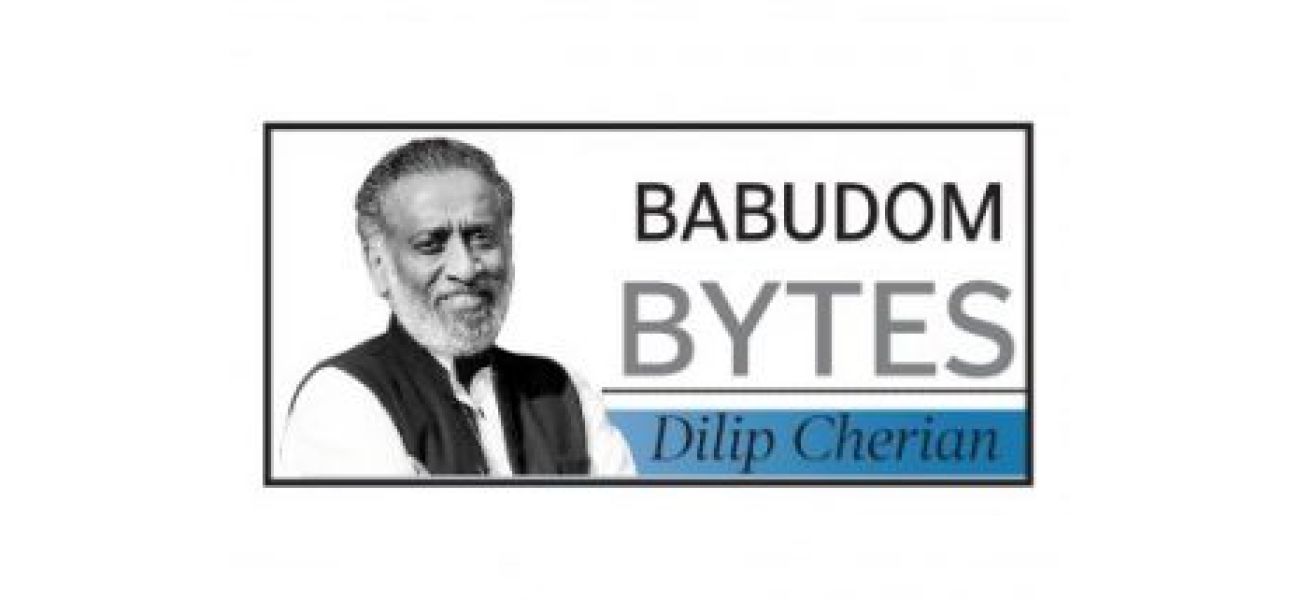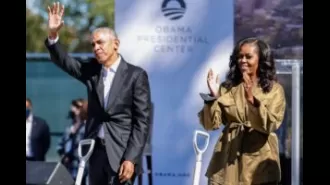A story that follows a man's odd job interview and the surprising turn of events that ensue.
Ex-ED chief Sanjay Kumar Mishra appointed as full-time member of EAC-PM, raising questions about lack of economists or need for forensic analysis in economic policy decision-making.
April 5th 2025.

Sanjay Kumar Mishra, the former chief of the Enforcement Directorate, has recently been appointed as a full-time member of the Economic Advisory Council to the Prime Minister. This may come as a surprise to some, as an investigator is now advising on economic policy. One might even question if we are facing a shortage of economists, or if the economy has become a case for forensic analysis.
But before we jump to conclusions, let's give credit where it's due. Mishra's tenure at the ED was marked by high-profile investigations and a no-nonsense approach to financial malfeasance. His experience in navigating the murky waters of economic offences could bring a fresh perspective to the EAC-PM. After all, understanding the underbelly of financial crimes might offer unique insights into the loopholes that plague our economy.
However, there is a lingering question: does this appointment signify a dwindling pool of economists willing to step into advisory roles? The unfortunate passing of Bibek Debroy, the former chairman of the EAC-PM, left big shoes to fill. Debroy was not just an economist; he was a polymath who seamlessly blended economic theory with cultural scholarship. Replacing such a towering figure is no small feat.
It is evident that seasoned economists are hesitant to enter the fray of policy advising. The political landscape can be treacherous, and the role of an economic advisor often involves walking a tightrope between academic integrity and political pragmatism. It's no wonder that professionals might hesitate to dive into such turbulent waters. Moreover, the current ensemble of economic advisors seems to lack the heft and gravitas that figures like Debroy brought to the table. While fresh perspectives are invaluable, the absence of seasoned economists raises questions about the depth of economic discourse within the council.
So, what does Mishra's appointment signify? Is it an acknowledgment that our economy needs a watchdog's scrutiny, someone adept at identifying and plugging financial leaks? Or is it a subtle nod to the idea that traditional economic strategies need a shake-up, perhaps through the lens of law enforcement experience? It's possible that this appointment reflects a shift in priorities within the PMO.
Another recent appointment in the PMO has also raised eyebrows. Nidhi Tewari, a 2014-batch IFS officer, has been appointed as the Prime Minister's private secretary, a position that is typically dominated by IAS officers. This move has sparked speculation about a potential shift in how Narendra Modi manages both domestic and foreign policy.
Traditionally, this role has been held by Indian Administrative Service (IAS) officers, who are responsible for navigating the vast machinery of governance. On the other hand, the Indian Foreign Service (IFS) is typically the cadre of diplomats, representing India to the world. This appointment suggests a subtle yet intriguing shift in the PMO's dynamics.
In today's globalized world, foreign policy and economic diplomacy are deeply intertwined with domestic priorities. With trade deals, global alliances, and India's international standing becoming increasingly crucial, having an IFS officer in such a position might be a strategic masterstroke. Furthermore, Modi's global outreach is an integral part of his leadership style.
This isn't the only unconventional appointment in the PMO. In recent times, there has been a trend of bringing in expertise from outside the usual IAS-dominated circles. If this trend continues, it may indicate a quiet but significant shift in the functioning of India's highest office.
In a country where fair skin is often considered the standard of beauty, Kerala Chief Secretary Sarada Muraleedharan's recent experience sheds light on the prevalence of colorism. When she was subjected to a colorist remark on social media, Muraleedharan responded with grace and poise, turning it into a powerful lesson on self-assurance and dignity.
Rather than playing the victim, Muraleedharan reclaimed blackness, calling it powerful, all-absorbing, and universal. Her poetic response was supported by the IAS Association, which rightly called out the pettiness of judging an officer's competence based on skin color. However, the fact that such a defense was necessary in 2025 speaks volumes about the persistence of prejudice against dark skin. It is not just about color; it is often intertwined with sexism, class bias, and deep-seated social conditioning.
Muraleedharan's response was not just about shutting down one nasty remark; it was about flipping the script entirely. It serves as a reminder that confidence is the best answer to ignorance. Perhaps it's time for the rest of us to follow her lead and challenge societal norms that promote discrimination based on superficial factors.
But before we jump to conclusions, let's give credit where it's due. Mishra's tenure at the ED was marked by high-profile investigations and a no-nonsense approach to financial malfeasance. His experience in navigating the murky waters of economic offences could bring a fresh perspective to the EAC-PM. After all, understanding the underbelly of financial crimes might offer unique insights into the loopholes that plague our economy.
However, there is a lingering question: does this appointment signify a dwindling pool of economists willing to step into advisory roles? The unfortunate passing of Bibek Debroy, the former chairman of the EAC-PM, left big shoes to fill. Debroy was not just an economist; he was a polymath who seamlessly blended economic theory with cultural scholarship. Replacing such a towering figure is no small feat.
It is evident that seasoned economists are hesitant to enter the fray of policy advising. The political landscape can be treacherous, and the role of an economic advisor often involves walking a tightrope between academic integrity and political pragmatism. It's no wonder that professionals might hesitate to dive into such turbulent waters. Moreover, the current ensemble of economic advisors seems to lack the heft and gravitas that figures like Debroy brought to the table. While fresh perspectives are invaluable, the absence of seasoned economists raises questions about the depth of economic discourse within the council.
So, what does Mishra's appointment signify? Is it an acknowledgment that our economy needs a watchdog's scrutiny, someone adept at identifying and plugging financial leaks? Or is it a subtle nod to the idea that traditional economic strategies need a shake-up, perhaps through the lens of law enforcement experience? It's possible that this appointment reflects a shift in priorities within the PMO.
Another recent appointment in the PMO has also raised eyebrows. Nidhi Tewari, a 2014-batch IFS officer, has been appointed as the Prime Minister's private secretary, a position that is typically dominated by IAS officers. This move has sparked speculation about a potential shift in how Narendra Modi manages both domestic and foreign policy.
Traditionally, this role has been held by Indian Administrative Service (IAS) officers, who are responsible for navigating the vast machinery of governance. On the other hand, the Indian Foreign Service (IFS) is typically the cadre of diplomats, representing India to the world. This appointment suggests a subtle yet intriguing shift in the PMO's dynamics.
In today's globalized world, foreign policy and economic diplomacy are deeply intertwined with domestic priorities. With trade deals, global alliances, and India's international standing becoming increasingly crucial, having an IFS officer in such a position might be a strategic masterstroke. Furthermore, Modi's global outreach is an integral part of his leadership style.
This isn't the only unconventional appointment in the PMO. In recent times, there has been a trend of bringing in expertise from outside the usual IAS-dominated circles. If this trend continues, it may indicate a quiet but significant shift in the functioning of India's highest office.
In a country where fair skin is often considered the standard of beauty, Kerala Chief Secretary Sarada Muraleedharan's recent experience sheds light on the prevalence of colorism. When she was subjected to a colorist remark on social media, Muraleedharan responded with grace and poise, turning it into a powerful lesson on self-assurance and dignity.
Rather than playing the victim, Muraleedharan reclaimed blackness, calling it powerful, all-absorbing, and universal. Her poetic response was supported by the IAS Association, which rightly called out the pettiness of judging an officer's competence based on skin color. However, the fact that such a defense was necessary in 2025 speaks volumes about the persistence of prejudice against dark skin. It is not just about color; it is often intertwined with sexism, class bias, and deep-seated social conditioning.
Muraleedharan's response was not just about shutting down one nasty remark; it was about flipping the script entirely. It serves as a reminder that confidence is the best answer to ignorance. Perhaps it's time for the rest of us to follow her lead and challenge societal norms that promote discrimination based on superficial factors.
[This article has been trending online recently and has been generated with AI. Your feed is customized.]
[Generative AI is experimental.]
0
0
Submit Comment





